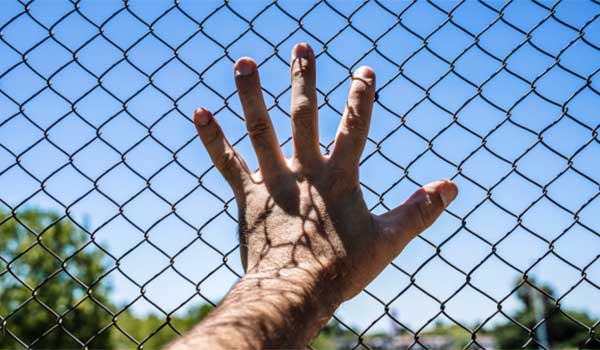
Before I joined Siren, the company on a mission to keep people, assets and networks safe, I had never come in contact with the realities of human trafficking. It’s deeply disturbing to think that this silent epidemic infiltrates our society from the cosmopolitan streets of bustling international cities to the farthest corners of the globe. Human trafficking, a grim form of modern-day slavery, involves the exploitation of individuals through force, fraud, or coercion for labour or commercial sex, robbing them of their freedom and dignity.
According to the US White House report an estimated 25 million people are subjected to human trafficking and forced labour, which is responsible for an estimated $150 billion annually in illicit profits.
While flying in the US last year, I noticed a woman in security pull a young girl aside and give her a medical check. She most certainly displayed symptoms of being a person trafficked. It was the first time in my life I had noticed anything like it and I could clearly see that awareness is the first step to intervention.
Today, on World Day Against Trafficking in Persons 2024, the United Nations campaign theme, “Leave No Child Behind in the Fight Against Human Trafficking,” resonates deeply with me. At Siren, we are proud to collaborate with the Anti-Human Trafficking Intelligence Initiative, an NGO dedicated to sifting through harrowing data to rescue trafficked individuals and whose data our customers use to solve Human Trafficking cases.
The fight against modern-day slavery requires collective action from individuals, communities, and organisations. If, like me, you were previously unaware, here are six simple ways you can immediately help in your everyday life.
- Educate yourself: The indicators of human trafficking are published on the US Homeland Security website and while a confronting read, once you know what to recognize, you may be able to help a person in a dire situation. Shocking for me, these crimes often occur in plain sight in first world countries, in places like hotels and large airports.
- Be a responsible consumer: Know the origins of the products you buy by using tools like ResponsibleSourcingTool.org to try and ensure ethical sourcing as much as you can. Our Chairman Bob Griffin, wrote a blog last year about Trafficking in the Supply Chain and how some CEOs are completely unaware of what their transport units are being used for.
- Social media advocacy: Use your social media platforms to raise awareness on days like today. Share information and use hashtags like #freedomfirst to spread awareness of this epidemic that occurs in plain sight. You never know who you might educate and help.
- Parental vigilance: Parents and caregivers should learn how traffickers target young people. Engage in community conversations with local schools, law enforcement, and PTAs to safeguard children.
- Educate others: Share your knowledge about human trafficking with friends, family, and colleagues to spread awareness.
- Donate: There are so many worthy causes out there, find your NGO of choice, like the Anti-Human Trafficking Intelligence Initiative.
By simply adjusting your perspective and increasing your awareness, you can make a meaningful contribution to the fight against human trafficking. Your efforts can help protect vulnerable individuals and create a safer world for everyone. I hope you found these points informative and maybe you’ll be inspired to make a social post today.
#EndHumanTrafficking


